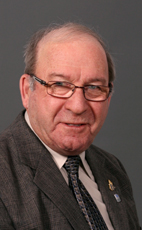Last week, the Bloc québécois MP Yvon Lévesque really made a fool of himself. He declared that his constituents in the far north riding of Abitibi-Baie-James-Nunavik Eeyou would “never” elect a First Nations candidate. He was reacting to the news that a popular First Nations leader, Roméo Saganash, had just been nominated to stand for the NDP. It was an insult and an injury, suggesting a not-so-hidden racism against indigenous people, but also in a twisted way against the francophone Québécois. Lévesque had to backtrack, but he and his leader Gilles Duceppe refused to apologize.
Saganash is well-known in Québec and one can credit Jack Layton for recruiting him. As the Director of Quebec Relations for the Grand Council of the Crees/Cree Regional Authority, he has been the main spokesperson for the Cree in Québec throughout their battles and negotiations regarding the James Bay in particular. The latest agreement (signed in 2002) provides for the sharing of revenues derived from mining, hydroelectric development and forestry carried out on the traditional lands of the Cree, and has often been seen as a “model” related to First Nations demands. Saganash, a French-speaker by education, has received numerous honors and prizes and is a frequent speaker with media and at special events.
In the past, Quebec nationalists’ relations with First Nations were generally positive even with several “bumps” along the way. PQ founder René Lévesque (no relation with Yvon Lévesque) was outspoken in the necessity to establish friendly relations. He was conscious of the necessity to defend First Nation demands while claiming Québécois national rights. The stakes were high with the Cree considering the huge hydro-electrical projects that were central to the different Québécois governments and to the nation as a whole.
When the PQ came back into power in 1994, relations were tense. The confrontation in Mohawk communities near Montreal had left scars even though they happened under a Liberal administration. Native communities were also worried about the sovereignty project that came close to winning in the 1995 referendum. Generally, First Nations have not really taken sides on federalism or Québec sovereignty, but they do not like the idea of new borders that would cut out their communities.
Social movements and the left in Québec have worked on this indigeous issues. Within Québec Solidaire, there is an understanding that First Nations have the right to self-determination and that people-to-people negotiations should take place to share the territories and its resources. Because of material realities, it will be difficult for First Nations to push for an independent state (or independent states), which does not mean that sovereign rights could not be exercised widely.
Nonetheless, racism and anti-Native sentiment are a serious problem in Quebec. For example, last year, a project to transform a local hospital in Montreal into a medical facility dedicated to Inuit communities was opposed by local residents. Québec solidaire mobilized for and with the Inuit and attracted attention to this issue – although at the end, the Inuit decided to abandon the project.
In the meantime, many politicians and community leaders, Native and non-Native, have asked Lévesque to pull out of the election or at least to make a comprehensive apology.



